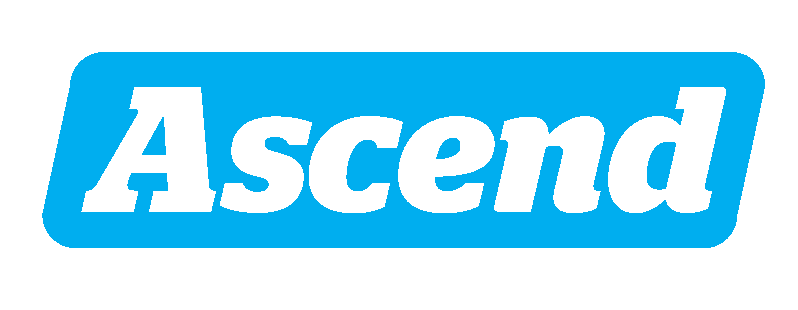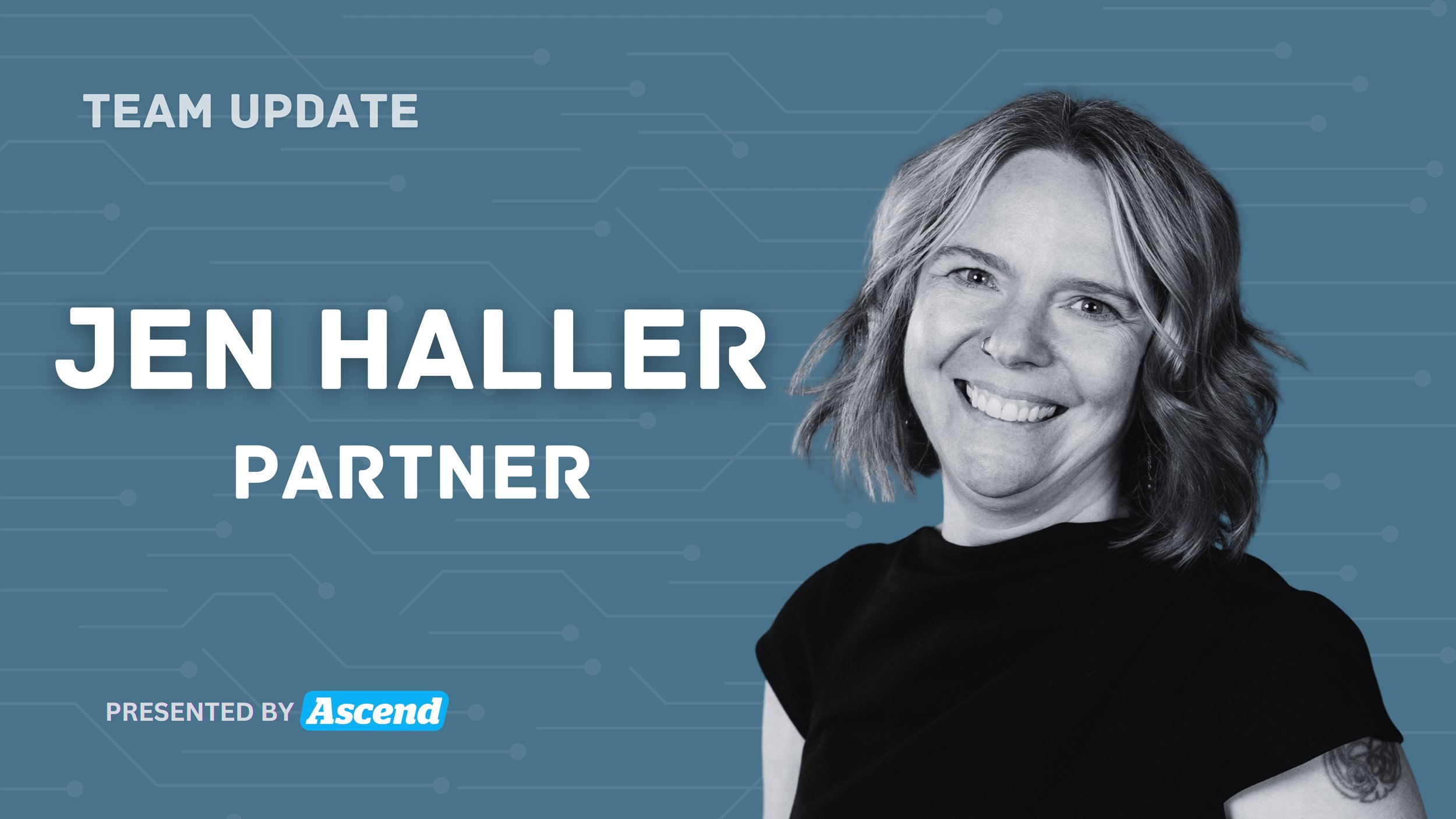By: Nate Bek
In March 2020, Jen Haller was everywhere. The Seattle operator underwent a grueling media circuit of MSNBC, Fox News, NPR, CNN, and many others. GeekWire crowned her Geek of the Week, the soon-to-be Vice President Kamala Harris called her a “true hero” on Instagram, and Oprah said she has “moxie.” Jen was the first person in the world to get the Covid-19 vaccine — and this was her 15 minutes of fame.
“I quickly found my voice,” Jen says about the experience. “In times of crisis, it makes sense for all of us to turn inward, focusing on ourselves and immediate family. But when I realized we were alright, I reached out, and was like, ‘Okay, how can I help?’”
That bias for action has led to Jen’s role today as partner at Ascend. She is among the most skilled operators and connectors in the Seattle startup scene, with a sixth sense for understanding founders and guiding them through the chaotic and sometimes unprecedented process of launching a company. For two decades, she has built a sprawling network in the Seattle tech sector, always finding ways to jump in and offer support at the earliest stages of a new venture — even if that means being first in line to get a new vaccine.
“Jen is an investor, confidante, therapist, and best friend all wrapped into one,” says Varun Puri, CEO and co-founder at Yoodli. “Her superpower is that she always shows up, no questions asked.”
In many ways, Jen is an architect of Ascend’s evolution as an early-stage venture capital firm. She and Kirby have an understanding: Kirby makes the investment decisions and Jen runs the firm’s platform and operations. This gives her the agency to focus on supporting founders and fostering community without worrying about evaluating founders or generating deal flow.
“What’s unique about this partner title is that it recognizes the significance of a support role — I don’t want to do Kirby’s job, and he doesn’t want to do mine, we get to focus in the areas where we shine,” Jen says. “It’s so rewarding to just be out there doing good for the larger Seattle startup community, knowing that it all ties back to building Ascend’s brand. It’s cool to be able to help whoever needs it, trusting that all of that will benefit us in the long run.”
In the two years since joining Ascend, Jen’s presence and network has left an indelible imprint on the more than 80 companies in the firm’s portfolio. She knows the right people — or, at least, people who know the right people — to provide instant support to startups.
“Even in this short time that Avante has been in the Ascend family, I’ve seen Jen just go all out for me,” says Rohan D'Souza, co-founder and CEO at Avante. “Jen goes above and beyond, diving deep into her network — and even her network’s network — to pull out whatever resources or advice can help us out.”
That support line extends beyond just warm intros. Lakshay Chauhan, CEO and co-founder at Finpilot, says Jen helped with resources around legal, accounting, hiring, running background checks and random operational issues since Ascend’s initial investment last year.
Jen’s roots run deep in Seattle, shaped by more than two decades in its tech sector and a lifetime in the region. A University of Washington communications grad, she briefly dallied with politics at the Washington state Democratic Party. But it was the allure of startups, after stints in marketing and health tech, that captured her.
At Urbanspoon, then a darling of Seattle's startup scene, Jen stepped in as office manager. In a few years, she grew the team from 12 to 50, paralleling the company’s 400% growth. Her next stop was police body camera maker Axon, steering the buildout of the Seattle office’s expansion from 20 to 150. The new office, complete with its spaceship entrance and sci-fi pods, earned the “Geekiest Office” title from GeekWire in 2016.
However, as her roles inevitably veered towards HR in maturing companies, Jen felt out of sync. Her passion is with early-stage ventures, thriving in the chaos, playing the jack-of-all-trades. “I’ve always said I really like predictability, but when my jobs started becoming the same every day, that was a sign for me,” she says. Despite craving stability, she’s drawn to the disorder, aiming to organize and support.
This led Jen to co-founding The Flight Team, a consultancy aiding early-stage startups in strategic growth. After building a solid client list, she was recruited by Paul Allen’s Stratolaunch, managing the office and culture for more than 100 employees at the aerospace firm. Following Allen’s death in 2018, her role shifted to supporting employee offboarding and facility closures. This was part of the ebbs and flows of the startup world, the chaos she sought out, she says.
After being recruited by multiple companies, Jen then decided to join Seattle AI startup Attunely, drawn to the strong founding team. She worked there for almost three years during its rapid growth. “Jen was my right-hand person for several years,” says Scott Ferris, founder and former CEO of Attunely. “She operates with unparalleled efficiency and reliability.”
Through each stop in her startup gauntlet, Jen managed to keep a personal style that included maintaining a sense of camaraderie. Andy Romfo, who worked with Jen at three different companies, says “Jen instills a sense of calm.”
Leaving Attunely in late 2021, Jen was on the lookout for her next venture within the early-stage startup sphere. She approached Kirby to introduce her to some of the companies in his portfolio. Kirby did just that, but he also presented an alternative offer: to join Ascend and broaden her influence across multiple startups at once.
The first time I met Jen, I was still an intern at GeekWire covering startups and venture capital. At the time, I was eager to land scoops and meet as many founders as possible. This led me to participate in a ton of networking events. The only problem was that I had no idea how to actually network. Eventually, at a fintech cocktail event, Jen saw my struggle and shared her wisdom: embrace Seattle’s introverted vibe, engage engineers with questions about their tech, and simply showing up matters most. That advice stuck.
Jen’s knack for making people feel included has become her trademark in the tech world. She supports AI Tinkerers Seattle, a group of engineers that hack together projects. According to founder Joe Heitzeberg, her welcoming nature fosters a collaborative spirit crucial to the group’s success.
Jen has also been involved in developing events that specifically empower women. During a conversation with Goldenrod Ventures Founding Partner Martina Welkhoff, the duo brainstormed an idea to create a poker night for female founders and investors. Unlike others who might have just let such an idea like that fade, Welkhoff says, Jen followed up immediately to make it happen. It’s now a recurring event bringing together women founders and funders to network and play poker.
Asked about her drive to support and launch new projects, Jen tells me she gets energized by helping others and making a positive impact: “I get back so much more than I put in.”
Jen’s courage in being the first to receive the vaccine brought comfort to millions apprehensive about its effects. But it’s her capacity to forge deeply personal connections and offer her unwavering support that truly defines her impact on both Ascend and the broader Seattle startup community.
As Puri says: “There are few people who want Yoodli to succeed as badly as she does. In doing so, she always holds us to the basics — to be kind and focus on the things that matter outside of work above all else. We’re so lucky to have her in our corner.”






